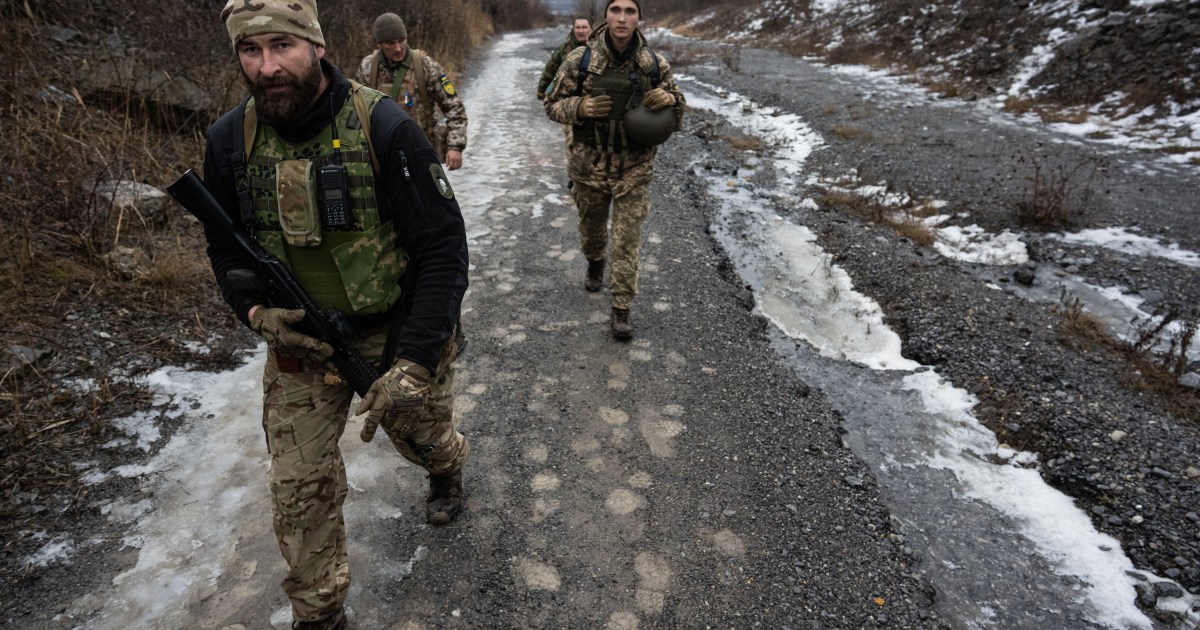Washington continued to send military reinforcements to Europe, coinciding with Russia's continuing maneuvers on Ukraine's borders, while a high-ranking US delegation begins a European tour to coordinate positions on imposing severe sanctions on Moscow in the event of an invasion of Ukraine.
Today, a high-ranking US delegation, including assistant secretaries of state, treasury, and trade, began a visit to Europe to coordinate positions on the expected sanctions.
In Berlin, German Chancellor Olaf Schulz will hold talks with European Council President Charles Michel, led by the Ukraine-Russia crisis.
For his part, Gitanas Nausida, President of Lithuania, said that "the security situation around Ukraine is very worrying," and that "the Union of the Peoples of the North Atlantic Treaty Organization (NATO) is important because Russia continues to increase tension."
In turn, British Foreign Secretary Liz Truss said, "Russia should have no doubts about the strength of our response and the heavy costs that will include a coordinated sanctions package," adding, "I am visiting Moscow to convey a clear message that any Russian invasion of a sovereign country will have dire consequences."
Warnings to the West
Meanwhile, the Collective Security Treaty Organization said that the buildup of the North Atlantic Treaty Organization (NATO) near the borders of Russia and Belarus, poses a threat to all countries of the organization.
The Secretary-General of the organization, Stanislav Zas, criticized the strengthening of NATO's infrastructure and increasing its activities near the western borders of the organization's countries.
Zass added that these activities not only pose a threat to Russia and Belarus, but also negatively affect the security of the entire organization.
He announced the formation of a rapid response working group during crises, against the background of the events that swept Kazakhstan last month.
He also stressed the need for the organization to be able to respond quickly and use its capabilities effectively in any circumstances and in any area under its responsibility.
harsh punishments
In the opposite camp, Ukraine's Foreign Minister Dmytro Kuleba said that the United States and the European Union had completed work on a package of very harsh sanctions against Russia.
During a press conference with his Spanish counterpart, Jose Manuel Alberez Bueno, Koleba expressed his gratitude for Spain's support for the sanctions already imposed by the European Union.
The Ukrainian Foreign Minister also stressed that the only effective strategy is the containment of Moscow by the European Union, adding that the issue is not only related to the security of Ukraine, but to the security of all of Europe.
Borrell's remarks
Earlier, European Union Foreign Minister Josep Borrell considered that French President Emmanuel Macron's visit to Russia brought with it an "element of détente" in the crisis between the West and Moscow over Ukraine, but it did not achieve any "miracle."
Borrell told reporters yesterday at the conclusion of his visit to Washington, "As long as there is a willingness to sit at the negotiating table and engage in dialogue, I think there will be hope not to engage in a military confrontation."
Russia has massed more than 100,000 troops on the border with Ukraine, prompting accusations from the United States and European countries that it is preparing to invade it.
Russia has denied it is planning to invade its neighbor, but the United States has warned that Moscow has mobilized 70 percent of the forces it would need to carry out a large-scale incursion.

